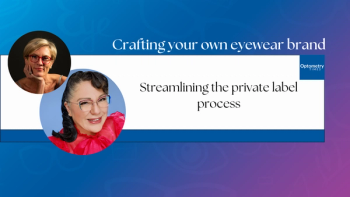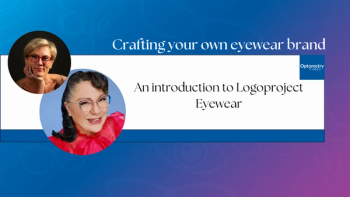
Understanding your staffers' 'social styles' can enhance office harmony
What some optometrists ignore in their practice are interpersonal skills and behavior.
Or maybe there's tension between a technician and optician. The technician enjoys gossiping endlessly about her family members. The optician tries to avoid dealing with her but the office is small. So at one point, she said sternly, "I don't want to listen to all of your stories!"
What went wrong? Equally important, how can you fix it?
Many optometrists focus their time and energy on ensuring that their employees have the appropriate technical skills, knowledge, and experience to perform their jobs successfully. But what some ignore is something that's just as critical-their interpersonal skills and behavior. Regardless of their technical skills, incompatible employees can wreak havoc in any practice environment, turning off coworkers and turning away patients.
To help employees develop interpersonal skills that lead to higher performance, enhanced patient satisfaction, and office harmony, a new workshop was created recently called Achieving 20/20 Productivity-How Behavior Affects Performance, said Bob Schwieterman, senior consultant for the performance consulting division of TRACOM Group, Highlands Ranch, CO.
Schwieterman, who helped develop the workshop content, said the seminar is a joint effort between TRACOM and Reed Exhibitions, organizer of the International Vision Expo conferences, to fill the gap that many workshops seem to ignore.
"The overall message is that we want to get employees to develop skills to interact better with patients and coworkers," he said. "TRACOM's model for understanding and improving interpersonal skills is called 'social style,' which, when understood and practiced, can really improve the productivity in the office."
Behavioral styles
During the workshop, four basic behavioral styles are introduced:
At the beginning of the workshop, he said participants complete a brief questionnaire to determine their social style. They also learn how to recognize other people's styles-both employees and patients-and receive tips on how to work effectively with them, especially when an individual's social style is different from their own. Participants then apply their knowledge to a case study, as well as to a real situation back at the office.
"If you're dealing with employees, right at the start make an assessment of their social style, then compare it with your style," Schwieterman explained. "This works with anybody you come in contact with. Then you're going to make alterations to your style that more conforms to how they like to work. We call this versatility, which is a measure of how effective one is in working with another person."
Newsletter
Want more insights like this? Subscribe to Optometry Times and get clinical pearls and practice tips delivered straight to your inbox.













































.png)


